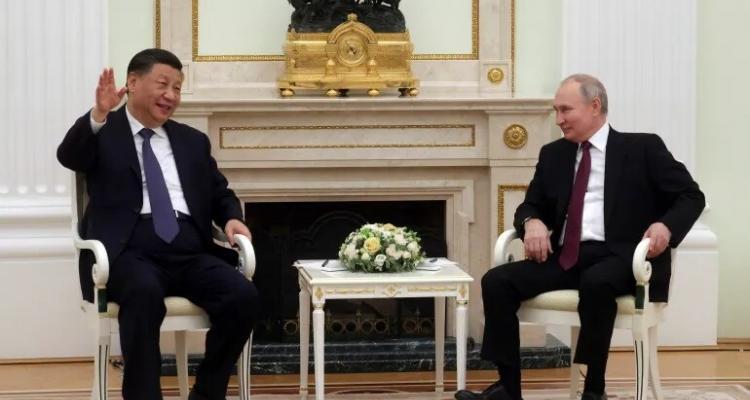
Russian president Vladimir Putin has announced that his country will replace United States Dollar with Yuan in its trade with countries in Asia, Africa and Latin America.
Speaking after meeting with China’s Xi Jinping in Moscow, Putin said two thirds of Russia’s trade with China already happens with Yuan and Russian Currency Ruble.
“I am confident that these forms of settlement in Yuan will develop between Russian partners and their counterparts in third countries,” said Putin.
The two world leaders signed 14 economic agreements on March 21, covering everything from scientific cooperation to joint production of television programs.
In a joint statement announcing the agreements, China and Russia said their alliance was not “confrontational in nature and…not directed against third countries.” The leaders also called for an “acceleration of the process of establishing a multipolar world order.”
Western banks and credit card companies departed Russia and the country’s financial institutions were cut off from the international payments system SWIFT following the war against Ukraine.
Al Jazeera reported that the Chinese Yuan and cryptocurrency have stepped into the void left by the West in Russia.
“The share of yuan-based transactions grew from 0.4 percent to 14 percent of the total in a nine-month period, according to the Carnegie Endowment for International Peace. In September, two Russian banks began to lend in Yuan and also use the currency for money transfers in lieu of SWIFT,” Al Jazeera reported.
Alexandra Prokopenko, a visiting fellow at the German Council on Foreign Relations, said in a recent article for the Carnegie Endowment for International Peace that Russia is swapping its dollar dependence for reliance on the yuan.
Prokopenko said: “This is hardly a reliable substitution: now Russian reserves and payments will be influenced by the policies of the Chinese Communist Party and the People’s Bank of China. Should relations between the two countries deteriorate, Russia may face reserve losses and payment disruptions.”
Follow us on Twitter:














